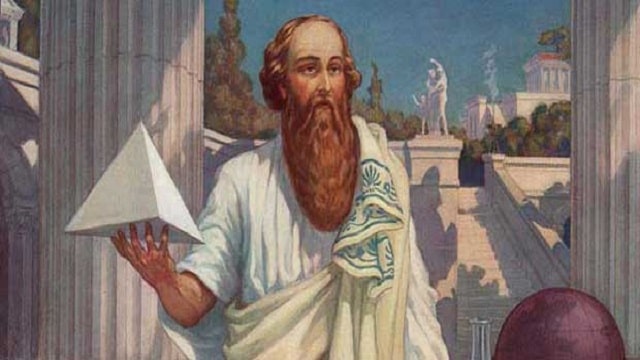Pythagoras
“Pythagoras is one of the most interesting and perplexing men in history,” wrote philosopher Bertrand Russell.
Regarding Pythagoras, it is very difficult to separate what is history from what is legend. Mathematician and philosopher pre-Socratic, magician, prophet, astronomer and, for some, charlatan, these are his multiple faces.
Pythagoras would have stated that “all things are numbers”. And it would be from this statement that he would base his mystical-philosophical proposals as a founder of the Pythagorean School, which was a major milestone in Western thought.
Pythagoras Trajectory
The first to call himself a “ philosopher ”, Pythagoras was born in 570 BC, on the island of Samos. Disgusted with the tyrannical government that ruled the Greek island, he left Samos, settling in Crotone, in southern Italy.
He founded a school of mathematicians there, the Pythagorean School. He later left the city due to social pressure. Before that, together with his disciples, he structured the famous Pythagorean Theorem.
Along the way, during his studies, Pythagoras was guided by Thales of Miletus. He distanced himself from his master, however, by betting that numbers were the cause of everything, and not some substance or matter.
He later settled in Metaponto, where he died in 490 BC, aged approximately 80.
Pythagoras was the first to bring mathematics, philosophy, and theology together, characterizing religious philosophy from Greece to Modernity. Music was also a discipline explored by the Pythagoreans who found the exact proportions to form the harmonic series.
The Pythagoreans
The Pythagorean School admitted men and women under the same conditions. The discoveries and research were considered collective, although many scholars say they were attributed only to Pythagoras after his death.
Its members manifested, at the same time, their mystical-religious and scientific-rational tendencies. They believed in the transmigration of souls and, therefore, adopted vegetarianism as a practice.
They adopted rituals to purify their souls, in which the principles of harmony and mathematics were essential. Mathematics, therefore, had religious importance.
Pythagoras and his disciples believed that all things were numbers and the School’s great discovery was the Pythagorean theorem.
Pythagorean theorem
Pythagorean theorem postulates that: “ In a right-angled triangle, composed of an internal angle of 90° (right angle), the sum of the squares of its legs corresponds to the square of its hypotenuse. ”
The theorem is applicable to all triangle rectangles.

In The Illustration, The Formula Of The Pythagorean Theorem, The Right Triangle With Its Legs (A And B), And The Hypotenuse (C)
